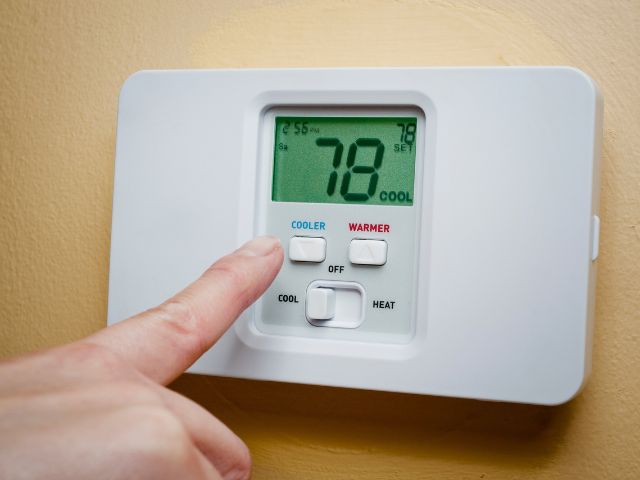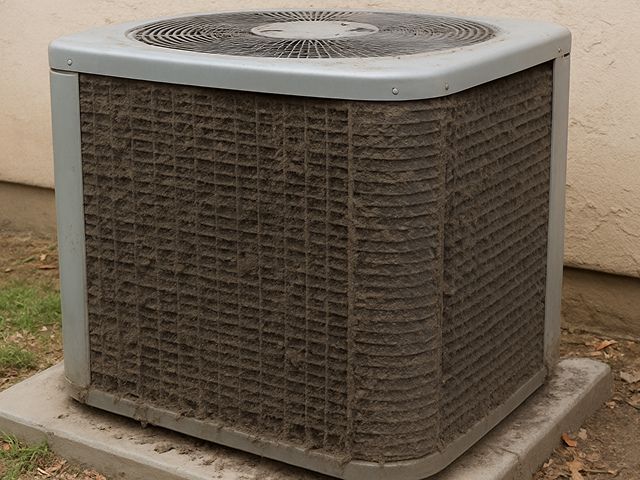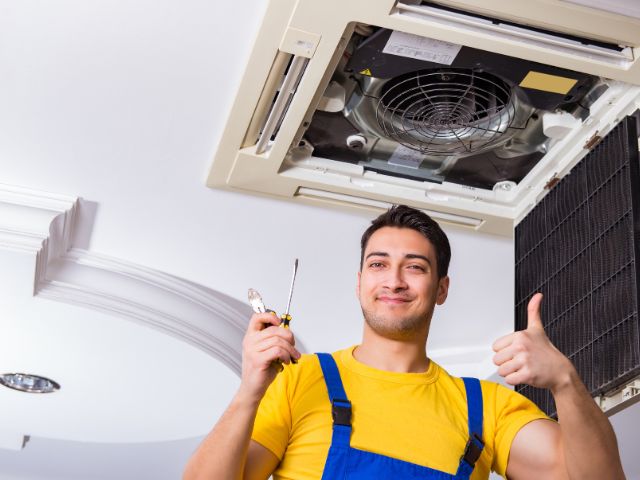Table of Contents
Nothing’s worse than losing cool air in the middle of a summer heatwave. If you’re suddenly sweating indoors, you’re probably wondering why central air conditioner stopped working just when you needed it most. While a total system failure can feel overwhelming, the cause is often something common and fixable. In this blog, we’ll explore seven of the most frequent reasons your central AC may have shut down—so you can stay cool and get your comfort back fast.
1. Dirty Air Filters Are Restricting Airflow
One of the most frequent reasons a central air conditioning unit stops working is a clogged or dirty air filter. Air filters are designed to trap dust, pollen, and airborne particles, but over time, they become blocked.
Why it matters:
A blocked filter restricts airflow, forcing the system to work harder. This not only reduces efficiency but can also lead to the unit overheating and shutting down entirely.
What to do:
Replace or clean your filters every 1-3 months depending on usage and indoor air quality. Regular maintenance ensures unrestricted airflow and optimal performance.
2. Thermostat Malfunctions Are Sending the Wrong Signals
Your AC system heavily relies on the thermostat to regulate temperature and activate cycles. If the thermostat is misreading the temperature or experiencing connectivity issues, your AC may not turn on or might shut off prematurely.
Signs of a faulty thermostat include:
- No display on the screen
- Unresponsive buttons
- Inconsistent temperature control
- AC cycling irregularly
Solution:
Check the battery (if applicable), ensure the thermostat is clean and level, and recalibrate if necessary. For smart thermostats, verify Wi-Fi and app settings. If problems persist, scheduling professional thermostat repair or replacement may be required to restore proper function and comfort.

3. Refrigerant Leaks Leading to Inefficient Cooling
Low refrigerant levels often stem from leaks in the coils or lines. Without enough refrigerant, your AC cannot effectively absorb and expel heat, leading to warm air blowing from vents or the system freezing over.
Key indicators:
- Hissing or bubbling noises
- Ice on the evaporator coils
- Inadequate cooling
- Rising utility bills
Resolution:
A licensed HVAC technician should locate and repair the leak, then recharge the system with the correct refrigerant type. DIY recharges are not recommended due to safety and environmental regulations.
4. Electrical Failures Causing Power Disruptions
A central AC system has numerous electrical components such as capacitors, contactors, and circuit breakers. Any failure within these components can abruptly stop your system from working.
Common electrical issues include:
- Blown fuses
- Tripped circuit breakers
- Worn capacitors
- Burned-out relays or wires
How to handle it:
Turn off power to the unit and inspect the circuit breaker. If it keeps tripping, call a professional immediately—continued resets can lead to severe damage or fire hazards. Electrical issues must always be handled by certified technicians.
5. Dirty Condenser Coils Reducing Heat Transfer
The condenser coils, located in the outdoor unit, are responsible for releasing the heat extracted from inside your home. When covered in grime, grass clippings, or debris, they cannot properly dissipate heat.
Consequences of dirty coils:
- Overheating compressor
- Increased energy consumption
- Reduced cooling efficiency
- Complete system shutdown
Maintenance tip:
Turn off the power and gently rinse the coils using a hose. Avoid high pressure, and consider scheduling a professional coil cleaning annually to prevent long-term damage.

6. Frozen Evaporator Coils Blocking Airflow
Despite sounding counterintuitive, frozen evaporator coils are a common summer issue. They form when airflow is compromised or refrigerant levels drop too low.
What causes freezing:
- Dirty filters
- Blocked vents
- Refrigerant leaks
- Malfunctioning blower fan
Symptoms include:
- Ice buildup on the indoor unit
- Warm air blowing from vents
- Water leaks around the indoor system
Fix it fast:
Shut off the AC and allow the coils to thaw completely. Replace the air filter and ensure all vents are open. If the freezing continues, contact an HVAC technician for a full system inspection.
7. Faulty Compressor Resulting in System Failure
The compressor is the heart of your air conditioning system—responsible for circulating refrigerant and maintaining cooling cycles. If it fails, the entire system will stop working.
Why compressors fail:
- Electrical issues
- Dirty coils causing overheating
- Low refrigerant levels
- Lack of maintenance
Warning signs of a failing compressor:
- Unit shakes or clicks on startup
- Blowing warm air
- Tripped circuit breaker
- AC won’t start at all
The only solution:
Compressor replacement is a complex task that must be handled by a certified professional. In some cases, depending on age and cost, replacing the entire unit might be more economical.
Bonus Tip: Schedule Routine AC Maintenance to Avoid Breakdowns

Prevention is better than a cure. Scheduling annual HVAC inspections and tune-ups can detect minor issues before they escalate into costly repairs or complete system failures.
Key maintenance tasks include:
- Checking refrigerant levels
- Cleaning coils
- Inspecting electrical connections
- Lubricating moving parts
- Calibrating the thermostat
Conclusion: Beat the Summer Heat with a Reliable AC System
When your central air conditioner unexpectedly stops working in the middle of summer, it’s not just frustrating—it can be dangerous, especially for young children and the elderly. By understanding these 7 common reasons your central AC stopped working, you can act quickly to resolve the issue or prevent it altogether. Whether it’s a clogged filter, refrigerant leak, electrical failure, or compressor issue, taking prompt action and scheduling routine maintenance can keep your home comfortably cool all season long.
If you’re unsure how to handle the issue, don’t wait for the heat to intensify—contact a licensed HVAC professional from HVAC Alliance Expert and restore your system to peak performance.
FAQs
If your AC is running but not cooling, it could be due to a dirty air filter, low refrigerant levels, or a frozen evaporator coil. Check your filter first, and if that’s not the issue, call a professional for further inspection.
During summer, it’s best to replace or clean your air filter every 1 to 2 months due to higher usage. This helps maintain airflow and improves system efficiency.
No, refrigerant leaks require specialized tools and certification to repair safely and legally. Always contact a licensed HVAC technician for proper diagnosis and service.
A frequently tripping breaker may signal electrical issues like a failing capacitor, compressor problems, or an overloaded circuit. Avoid resetting it repeatedly and call a technician to prevent further damage.
No, ice on your AC unit in summer usually indicates a problem such as low refrigerant or restricted airflow. Turn off the system and let it thaw before calling for a professional inspection.


